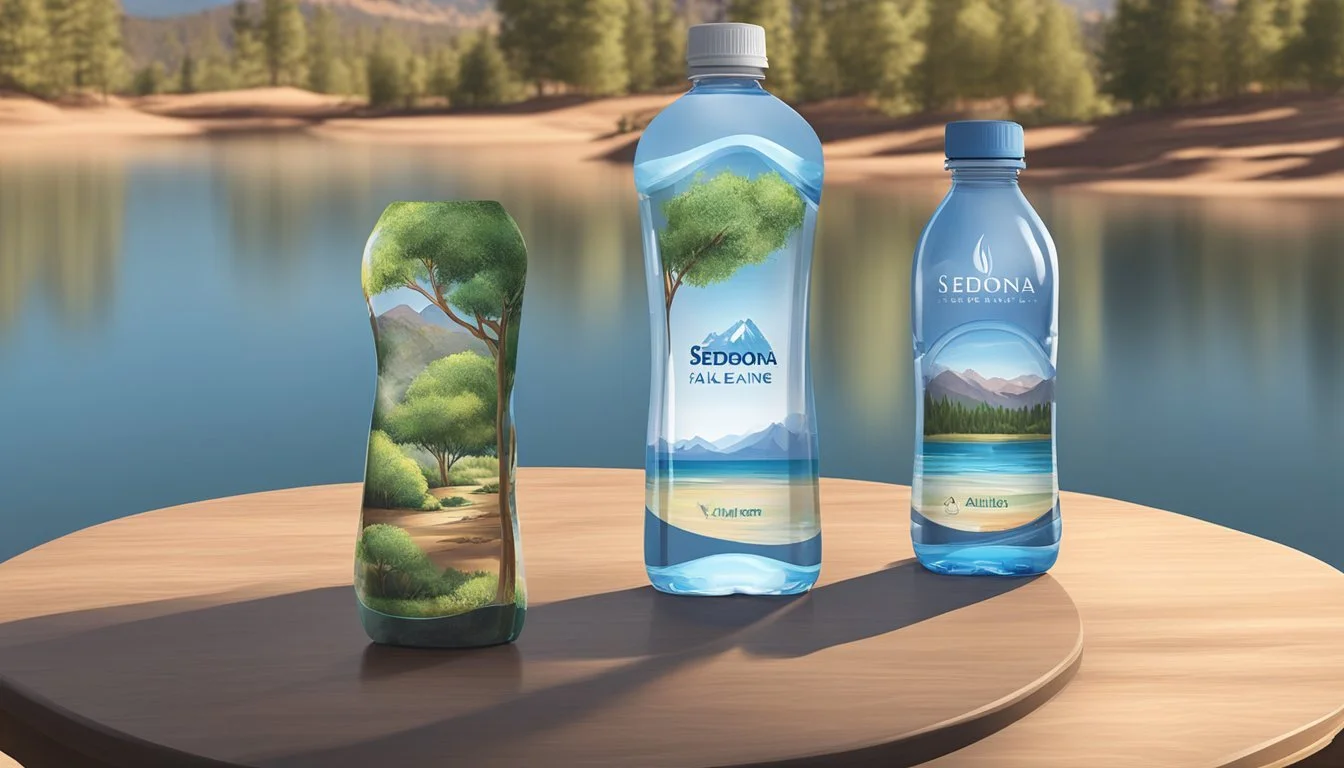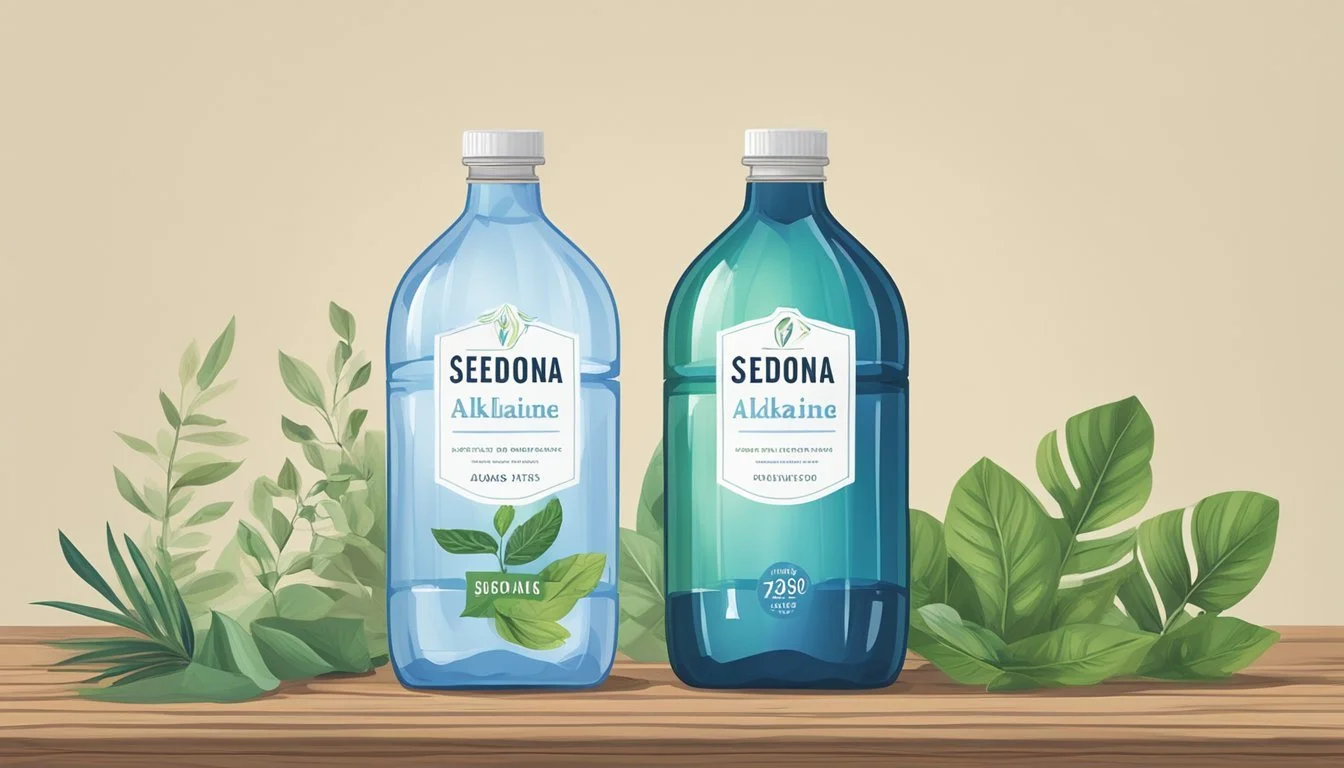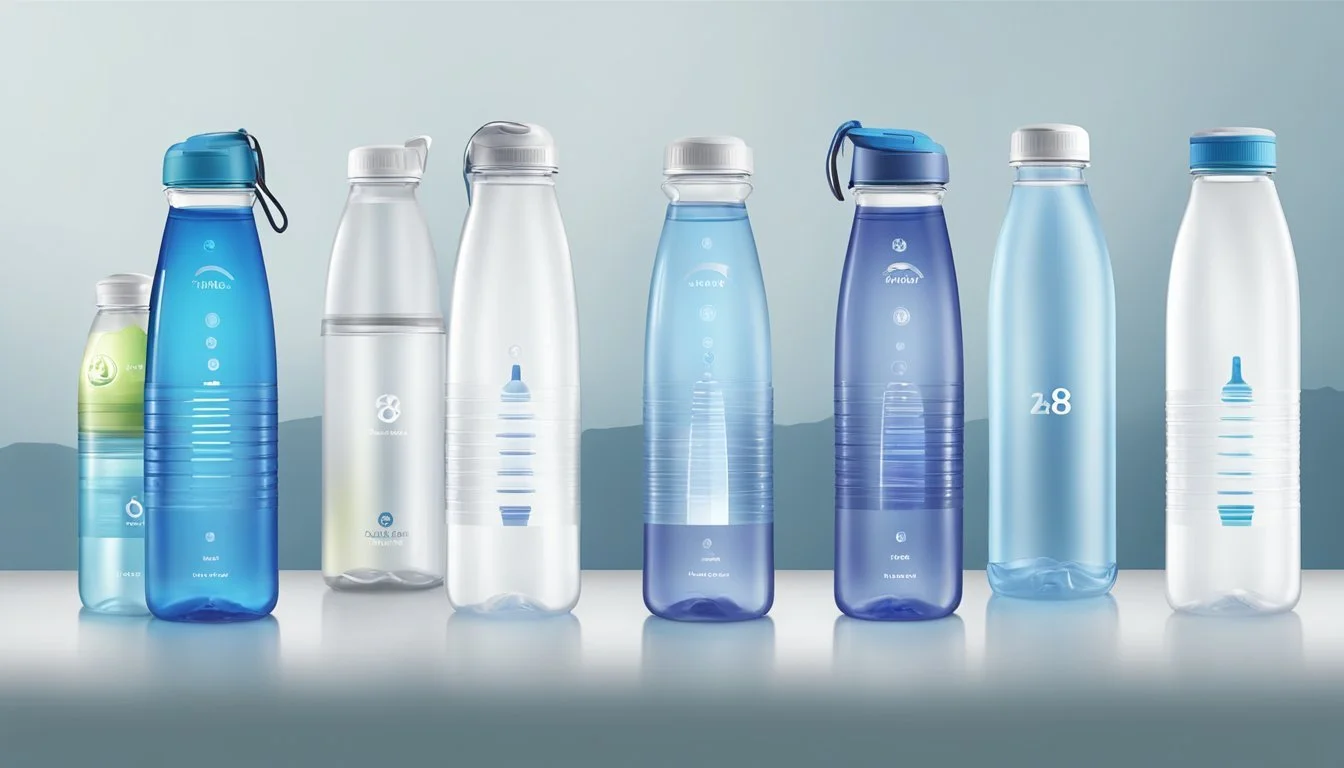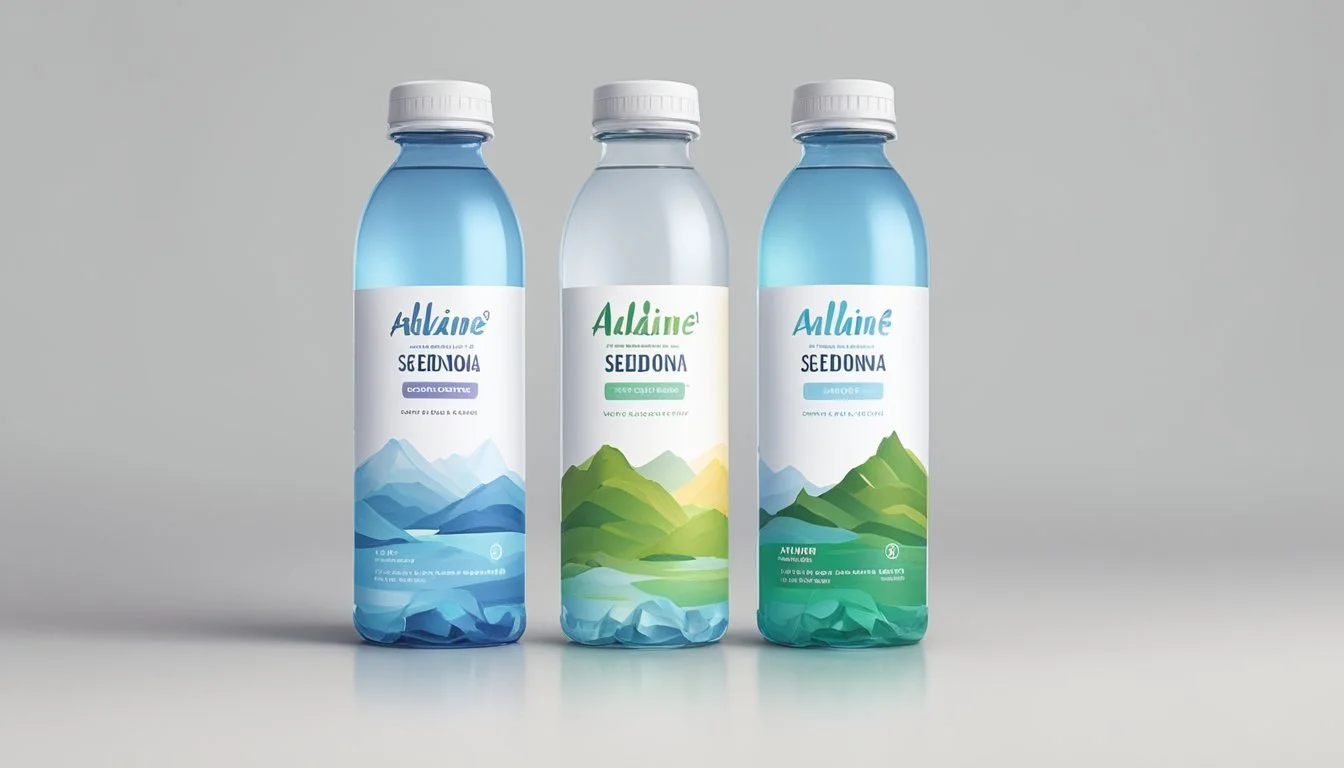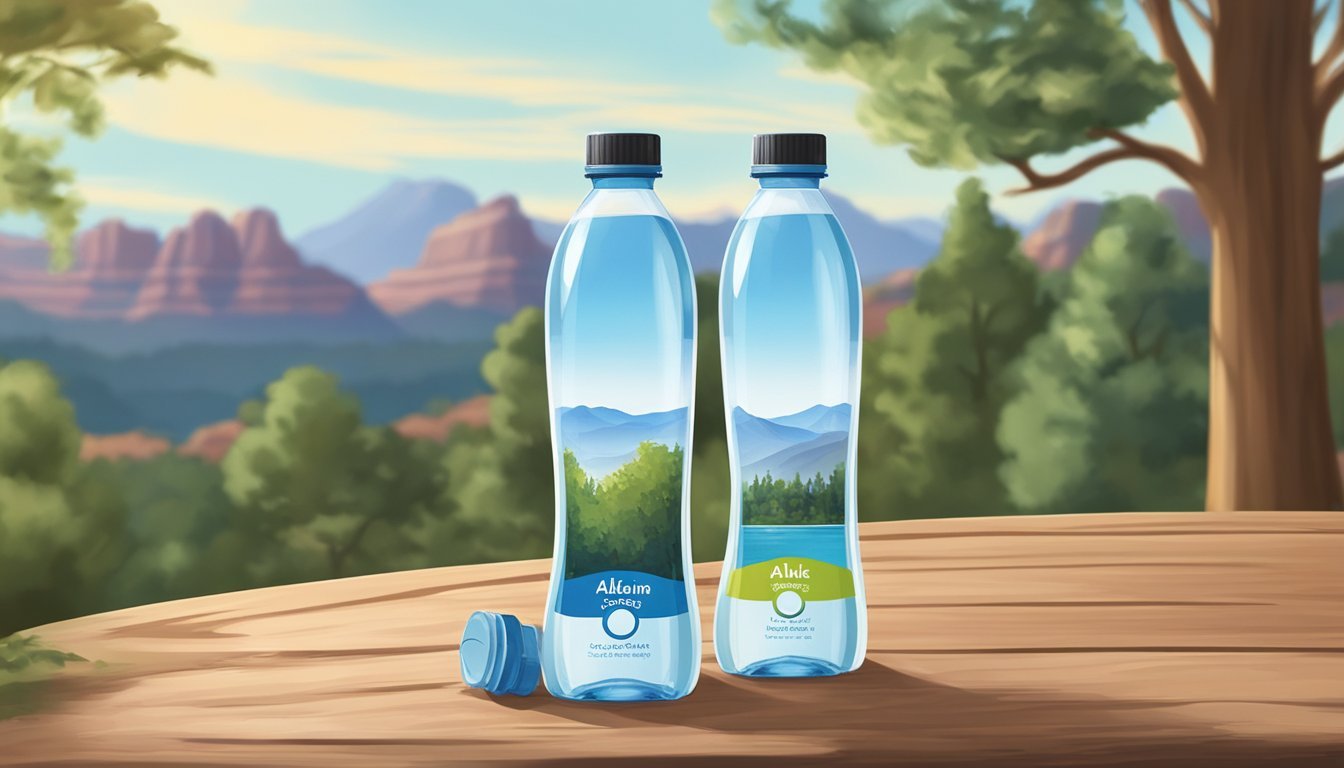Purely Sedona vs. Alkaline88
Comparing Bottled Water Quality
When it comes to choosing the best bottled water, the debate between Purely Sedona and Alkaline88 often surfaces among health enthusiasts. Both brands have carved out their own niche, with Purely Sedona known for its premium quality and taste, while Alkaline88 is celebrated for its balanced pH and added minerals. For those prioritizing pH balance and mineral content, Alkaline88 may be the better option.
Purely Sedona offers a crisp and clean taste which appeals to consumers who prefer a more traditional hydration experience. Its premium nature makes it a choice for those who don’t mind spending a little extra for perceived quality. On the other hand, Alkaline88, with its higher pH levels, targets individuals who believe in the health benefits of alkaline water.
In the world of hydration, preferences can vary widely. Some may favor the luxurious feel and taste of Purely Sedona, while others may lean towards Alkaline88 for its health claims. Exploring the distinguishing factors of each can help make a more informed decision on which bottled water best meets one's hydration needs.
Understanding Water Fundamentals
Water is essential for hydration and overall health, which makes it crucial to understand the different types of bottled water, their properties, and how they affect well-being. This section covers the definitions and health implications of bottled water and alkaline water, focusing on pH levels.
What is Bottled Water?
Bottled water is usually sourced from springs, wells, or municipal supplies and then filtered and purified.
Types of Bottled Water:
Spring Water: Sourced from natural springs, often contains minerals.
Purified Water: Processed to remove impurities, may come from any water source.
Mineral Water: Contains essential minerals like calcium and magnesium naturally.
The primary appeal of bottled water lies in its convenience and perceived purity, often influenced by specific sources and filtration processes. Labels usually specify the source and type, helping consumers choose according to their needs and preferences.
Defining Alkaline Water
Alkaline water has a higher pH level than regular drinking water.
Key Characteristics:
pH Level: Typically ranges from 8 to 9.
Mineral Content: May include calcium, magnesium, and potassium, which contribute to its alkalinity.
Proponents claim that alkaline water can neutralize acid in the bloodstream, improve metabolism, and enhance hydration. These benefits are mostly anecdotal, as scientific evidence remains limited. Popular brands like Alkaline88 offer water with added minerals to achieve these effects, appealing to health-conscious individuals.
Health Implications of pH Levels in Drinking Water
The pH level of drinking water indicates its acidity or alkalinity, which can impact health.
pH Scale:
Acidic Water: pH less than 7, can be corrosive.
Neutral Water: pH of 7, considered optimal for hydration.
Alkaline Water: pH greater than 7, believed to offer potential health benefits.
Drinking water with a balanced pH is crucial as it affects bodily functions. Acidic water may contribute to digestive issues, while alkaline water's benefits include potentially reducing acid reflux and promoting hydration. However, drastic changes in pH levels are not advisable without medical consultation.
Understanding these fundamentals helps consumers make informed choices based on water type, pH levels, and mineral content, tailored to their hydration and health needs.
Sourcing and Filtration Processes
Both Purely Sedona and Alkaline88 focus on delivering high-quality bottled water through distinct sourcing and filtration processes. They originate from specific natural sources and undergo thorough purification techniques to ensure safety and taste.
Spring Water and Its Source
Purely Sedona is sourced from natural springs in Oak Creek Canyon, Arizona. This area is renowned for its pristine waters enriched with natural minerals. The spring water's journey through the canyon's rock layers lends it a unique quality, enhancing its taste and purity.
In contrast, Alkaline88 does not originate from a specific spring. Instead, it is derived from municipal sources. Despite this difference, it undergoes processes that aim to elevate its quality, such as ionization and mineral addition, to mimic the benefits of natural spring water.
Filtration and Purification Methods
Purely Sedona employs a straightforward filtration process. The natural spring water undergoes minimal processing to retain its mineral content. The water is filtered to remove any potential contaminants while preserving its natural flavor.
Alkaline88, on the other hand, utilizes a more complex purification method. The water is initially filtered to remove impurities. Following this, it undergoes a proprietary electrolysis process, enhancing its alkalinity. This process also adds essential minerals like calcium, magnesium, and potassium, intended to benefit overall health.
Understanding Reverse Osmosis
Reverse osmosis is a critical method used by Alkaline88. This technique involves forcing water through a semipermeable membrane to remove contaminants. Alkaline88 leverages reverse osmosis to ensure the water is free from pollutants and impurities before further processing.
Purely Sedona does not use reverse osmosis, relying instead on the natural filtration provided by Oak Creek Canyon's geological formations. This natural filter retains beneficial minerals while eliminating harmful substances.
This approach highlights the brand's commitment to delivering water that is as close to its natural state as possible. Each brand's emphasis on different filtration methods reflects their philosophy towards water purity and quality.
Chemical Composition and Additives
The chemical composition of bottled water significantly impacts its taste, quality, and health benefits. Factors such as mineral content, the role of electrolytes, and added minerals are critical to understand when choosing between Purely Sedona and Alkaline88.
Assessing Mineral Content
Purely Sedona and Alkaline88 both offer unique mineral compositions. Purely Sedona is sourced naturally, often containing minerals like calcium, magnesium, and bicarbonate which contribute to its smooth taste and health benefits. In contrast, Alkaline88 undergoes purification processes such as reverse osmosis, and the water is adjusted to a higher pH, mostly to enhance its alkalinity.
While Alkaline88 may have lower initial mineral content due to its treatment processes, it often compensates by the addition of minerals to achieve its specific alkalinity levels. Calcium and magnesium in particular play crucial roles in overall body function, including bone health and muscle function, making their presence in water beneficial.
Role of Electrolytes in Hydration
Electrolytes are essential for maintaining hydration and proper bodily functions. Both Purely Sedona and Alkaline88 infuse their products with electrolytes like potassium, sodium, and magnesium. These electrolytes help replenish the body's balance after exercise or dehydration.
Alkaline88, marketed as a sports hydration beverage, emphasizes a higher concentration of these electrolytes. Its blend is designed to rapidly hydrate and restore the body's electrolyte balance. Comparatively, Purely Sedona, being more naturally sourced, might have a balanced but potentially lower concentration of these additives, appealing to those seeking a less processed option.
Added Minerals and Their Significance
Alkaline88 distinguishes itself by the deliberate addition of minerals to create its signature alkalinity. These added minerals typically include calcium, magnesium, and bicarbonate, elevating the pH of the water. This process not only enhances taste but is also marketed for its potential benefits in neutralizing acidity in the body.
Purely Sedona relies more on naturally occurring minerals, without significant alterations or additions. The natural mineral blend can vary depending on the geological source, providing a unique and potentially beneficial composition with less human intervention. This approach appeals highly to purists and those skeptical of chemically altered products.
Health and Nutritional Considerations
When comparing Purely Sedona and Alkaline88, it's essential to examine the potential health benefits and nutritional implications of each. This encompasses their impact on bone health, digestion, and muscle function.
Alkaline Water and Bone Health
Alkaline water has been suggested to support bone health. It typically has a higher pH level, around 8 to 10, which is believed to neutralize acid in the bloodstream. This neutralization can potentially help in reducing bone resorption, where bone cells break down and release minerals into the blood.
Some studies indicate that alkaline water might help improve calcium absorption. However, there is limited clinical evidence to firmly establish these benefits. It's important to consider that a balanced diet rich in calcium and vitamin D is crucial for maintaining healthy bones.
The Role of pH in Digestion
The pH level of water can influence digestive health. Purely Sedona possesses a pH of 8, making it slightly alkaline, while Alkaline88 generally maintains a pH near 9. Alkaline water might aid in neutralizing stomach acid and reducing acid reflux symptoms.
Nevertheless, the stomach naturally maintains a highly acidic environment essential for digestion and killing harmful bacteria. Regular consumption of highly alkaline water may interfere with this natural balance. People with chronic digestive issues should consult healthcare providers to understand the best dietary choices for their conditions.
Water Consumption and Muscle Function
Proper hydration is vital for optimal muscle function. Both Purely Sedona and Alkaline88 can adequately hydrate the body. Many athletes and fitness enthusiasts prefer alkaline water, believing it enhances hydration and helps reduce muscle fatigue.
Alkaline water is also thought to combat oxidative stress caused by intense exercise. Antioxidants in alkaline water may protect muscle cells from damage. While these benefits sound promising, rigorous scientific validation is still required. Ensuring sufficient water intake, regardless of type, is key to supporting muscle performance and recovery.
Comparative Analysis of Brands
An effective comparison between Purely Sedona and Alkaline88 involves evaluating their pricing, branding, and appeal. Additionally, it's crucial to benchmark these brands against other popular bottled waters to provide a clear perspective for consumers.
Evaluating Purely Sedona vs. Alkaline88
Pricing: Purely Sedona and Alkaline88 cater to different market segments. Purely Sedona ranges from $1.50 to $3.00 per bottle, making it more accessible. Alkaline88, priced at around $3 per bottle, is positioned as a higher-end option.
Branding: Purely Sedona emphasizes purity and local heritage, appealing to those who value natural sources. Alkaline88 focuses on its high pH level and health benefits, attracting wellness-conscious consumers.
Appeal: Purely Sedona's affordability contributes to its popularity among cost-conscious buyers. Alkaline88's premium pricing might deter some, but its health-centric branding ensures a loyal customer base.
Benchmarking Against Other Popular Brands
Essentia Water: Known for its ionized alkaline water, Essentia is a strong competitor. It offers similar health benefits to Alkaline88 but often at a slightly lower price point.
Icelandic Glacial: This brand boasts a high alkaline level with a pH of 8.4, similar to Alkaline88. Its emphasis on purity aligns with Purely Sedona, though it tends to be more expensive.
Smartwater: Glaceau Smartwater focuses on adding electrolytes for taste, differing from the natural appeal of Purely Sedona. However, it competes with Alkaline88 in health-focused markets.
Fiji Water: Known for its silica content and smooth taste, Fiji is a premium choice like Alkaline88. Its distinct positioning makes it less of a direct competitor to Purely Sedona.
Evamor: Praised for its high pH and consistent purity testing, Evamor aligns closely with Alkaline88 in terms of health benefits while being competitively priced.
These comparisons highlight the distinct strengths and market positions of Purely Sedona and Alkaline88 within the broader bottled water landscape.
Taste Profile and Palatability
Hydration isn't just about quenching thirst; the taste profile and palatability of bottled water can significantly impact the drinking experience. This section focuses on the flavor nuances and mouthfeel of Purely Sedona and Alkaline88.
The Link Between pH and Taste
Purely Sedona and Alkaline88 have distinct pH levels influencing their taste profiles. Alkaline88, with its higher pH, provides a smooth, clean taste often associated with ionized water.
This high pH can make the water feel less acidic, offering a mild and palatable flavor. Purely Sedona, with a lower pH, has a slightly more pronounced mineral taste, giving it a unique character. The acidity in Purely Sedona can result in a crisper, sharper taste.
Water Texture and Mouthfeel
The texture and mouthfeel of bottled water are crucial in determining its palatability. Alkaline88 is known for its smooth and almost silky texture, due to its ionized state and added minerals.
This water provides a pleasant, soft, and refreshing mouthfeel, making it easy and enjoyable to drink. Purely Sedona, on the other hand, offers a crisper and more robust texture. This might appeal to those who prefer a refreshing and invigorating feeling with each sip.
By understanding these key aspects, consumers can choose the bottled water that aligns with their taste preferences and drinking experience expectations.
Environmental and Sustainability Concerns
Examining the environmental impact and sustainability initiatives of Purely Sedona and Alkaline88 can help consumers make informed choices. This encompasses plastic waste issues and the companies' efforts toward eco-friendly packaging and recycling.
Bottled Water and Plastic Waste
Plastic waste is one of the primary environmental concerns associated with bottled water. Purely Sedona and Alkaline88 utilize plastic bottles, contributing to the growing problem of plastic pollution.
Purely Sedona aims to minimize waste by using recyclable PET bottles. PET is commonly recycled but relies heavily on consumer participation and proper waste management systems.
Alkaline88 also uses plastic bottles but emphasizes that their containers are BPA-free. They promote awareness about the importance of recycling their bottles to reduce environmental impact.
Despite these efforts, the sheer volume of plastic waste remains a significant issue. Consumers are encouraged to participate actively in recycling programs to mitigate this problem.
Eco-friendly Packaging and Recycling Initiatives
Both brands have made strides towards eco-friendly packaging and recycling initiatives to enhance their sustainability. Purely Sedona focuses on lightweight bottles to reduce material usage. They also engage in educational campaigns to promote recycling.
On the other hand, Alkaline88 has committed to using 100% recyclable bottles and supports initiatives aimed at reducing the carbon footprint of their production processes. They have also introduced bottles made from 25% recycled materials, aiming for continuous improvement in reducing waste.
While these efforts mark a positive shift, it remains crucial for the industry to push for innovative packaging solutions and to advocate for stronger recycling programs. This can significantly reduce the detrimental environmental impact associated with bottled water.
Economic Factors and Consumer Choices
Economic factors play a significant role in shaping consumer choices, particularly when deciding between Purely Sedona and Alkaline88 bottled water. Key considerations include the cost comparison with tap water and the convenience of portability.
The Cost of Bottled vs. Tap Water
The price of bottled water can vary widely. Purely Sedona's cost ranges from $1.50 to $3.00 per bottle, while Alkaline88, as a premium product, typically costs more. In contrast, tap water remains significantly cheaper.
For consumers, this price difference is a vital consideration. Investing in bottled water like Purely Sedona or Alkaline88 can add up over time, potentially making tap water a more economical choice for daily consumption.
Convenience and Portability Considerations
While tap water is cost-effective, bottled water offers unparalleled convenience and portability. Purely Sedona and Alkaline88 are often selected for their ease of transport, making them ideal for on-the-go hydration.
One advantage of bottled water is its availability in various venues. Whether in personal vehicles, gym bags, or office settings, having a bottle of Purely Sedona or Alkaline88 ensures immediate access to refreshing hydration, bypassing the need for a tap.
Combining cost-effectiveness with the convenience of bottled water, consumers make choices based on their lifestyle needs and financial considerations.
Innovations and Future Trends in Bottled Water
Innovations in bottled water focus on advanced filtration techniques and the development of new product varieties such as flavored and functional waters. These trends aim to meet evolving consumer demands for purity, health benefits, and unique taste experiences.
Emerging Technologies in Filtration
Advanced filtration technologies are transforming the bottled water industry. Mitte offers a system that mimics natural mineralization processes, ensuring water is both pure and enriched with essential minerals. This system uses reverse osmosis on top of regular filtration to eliminate contaminants.
Ionized alkaline water is gaining popularity. It undergoes a process that enhances its pH levels, purportedly offering various health benefits. Additionally, systems like the Brita pitcher and high-tech filtration built into premium brands focus on removing pollutants while maintaining beneficial minerals.
The Rise of Flavored and Functional Water Options
The demand for flavored options and functional water is expanding. Brands are creating waters infused with natural flavors like lemon, cucumber, and berries, enhancing the hydration experience. Functional waters are fortified with vitamins, minerals, and even electrolytes to address specific health needs.
Emerging products include immunity-boosting waters enriched with Vitamin C and effects-focused varieties such as relaxation or energy-boosting formulations. This diversification is leading the industry towards more specialized and customizable hydration solutions, satisfying a broader range of consumer preferences.
More About Purely Sedona
Aqua Carpatica vs Purely Sedona: Which Bottled Water is Better?
Boxed Water vs Purely Sedona: Which Bottled Water is Better?
Castle Rock vs Purely Sedona: Which Bottled Water is Better?
Core Hydration vs Purely Sedona: Which Bottled Water is Better?
Hawaii Volcanic vs Purely Sedona: Which Bottled Water is Better?
Hawaiian Springs vs Purely Sedona: Which Bottled Water is Better?
Ice Mountain vs Purely Sedona: Which Bottled Water is Better?
Icelandic Glacial vs Purely Sedona: Which Bottled Water is Better?
Mountain Valley Spring Water vs Purely Sedona: Which Bottled Water is Better?
Nestle Pure Life vs Purely Sedona: Which Bottled Water is Better?
Poland Spring vs Purely Sedona: Which Bottled Water is Better?
Purely Sedona vs Cascade Mountain: Which Bottled Water is Better?
Purely Sedona vs Crystal Geyser: Which Bottled Water is Better?
Purely Sedona vs Crystal Lake: Which Bottled Water is Better?
Purely Sedona vs Essence pH10: Which Bottled Water is Better?
Purely Sedona vs Kirkland Signature: Which Bottled Water is Better?
Purely Sedona vs Liquid Death: Which Bottled Water is Better?
Purely Sedona vs Proud Source: Which Bottled Water is Better?
Purely Sedona vs Richard's Rainwater: Which Bottled Water is Better?
Purely Sedona vs Simple Truth: Which Bottled Water is Better?
Purely Sedona vs Talking Rain AQA: Which Bottled Water is Better?
Purely Sedona vs Weird Water: Which Bottled Water is Better?
Purely Sedona vs Whole Foods 365: Which Bottled Water is Better?
Purely Sedona vs Whole Foods Italian Still Mineral water: Which Bottled Water is Better?
San Pellegrino vs Purely Sedona: Which Bottled Water is Better?
Solan de Cabras vs Purely Sedona: Which Bottled Water is Better?
Zephyrhills vs Purely Sedona: Which Bottled Water is Better?
More About Alkaline88
Alkaline88 vs Crystal Geyser: Which Bottled Water is Better?
Alkaline88 vs Kirkland Signature: Which Bottled Water is Better?
Alkaline88 vs Richard's Rainwater: Which Bottled Water is Better?
Alkaline88 vs Talking Rain AQA: Which Bottled Water is Better?
Alkaline88 vs Whole Foods 365: Which Bottled Water is Better?
Aqua Carpatica vs Alkaline88: Which Bottled Water is Better?
Cascade Mountain vs Alkaline88: Which Bottled Water is Better?
Core Hydration vs Alkaline88: Which Bottled Water is Better?
Hawaii Volcanic vs Alkaline88: Which Bottled Water is Better?
Hawaiian Springs vs Alkaline88: Which Bottled Water is Better?
Icelandic Glacial vs Alkaline88: Which Bottled Water is Better?
Mountain Valley Spring Water vs Alkaline88: Which Bottled Water is Better?
Nestle Pure Life vs Alkaline88: Which Bottled Water is Better?
San Pellegrino vs Alkaline88: Which Bottled Water is Better?
Solan de Cabras vs Alkaline88: Which Bottled Water is Better?
Whole Foods Italian Still Mineral water vs Alkaline88: Which Bottled Water is Better?

